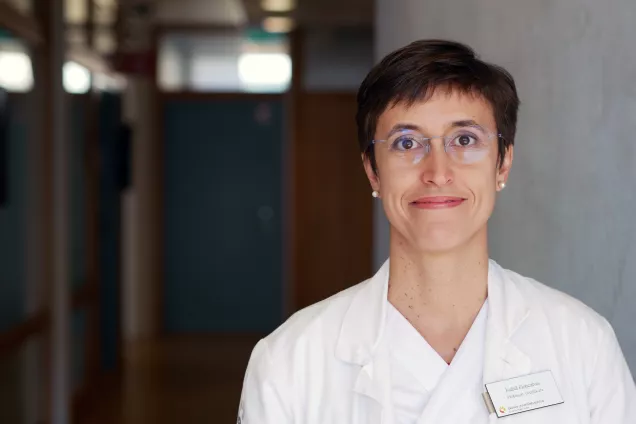Cardiovascular Research – Translational Studies
Isabel Gonçalves' group
Our research
Many victims of heart attacks and stroke die before reaching the hospital. The most frequent cause of myocardial infarction and stroke is the rupture of an atherosclerotic plaque with the subsequent formation of a thrombus that occludes the vessel. The rupture-prone plaques are called vulnerable plaques (VP), and usually have a large lipid and necrotic core, are rich in inflammation, and are covered by a thin fibrous cap.
Today, no good techniques for timely VP identification are available. Our work therefore focuses on discovering biomarkers and developing imaging techniques that could help identify individuals with VP, and allow the prevention of many of the severe symptoms, disability and death. New techniques may also facilitate the assessment of current and future plaque treatment strategies.
Type 2 diabetes (T2D) is increasing rapidly and patients suffering from T2D have a greatly increased risk of suffering from cardiovascular events due to accelerated atherosclerosis with more frequent plaque ruptures. Therefore, studying the development of plaques in diabetes patients is also a particular interest of the group.
Aims
- To study the mechanisms of atherosclerosis and their timeline using C14 dating method.
- To develop and evaluate a new non-invasive ultrasound-based technology to identify VP in humans.
- To examine whether there are associations between gene expression, lipidomics, extracellular matrix, and inflammation in human atherosclerotic plaques. We study material from our unique biobank to assess these associations in relation to the risk of developing cardiovascular events and search for new markers and treatment modalities.
Impact
We hope to identify patients, with and without diabetes, who are at higher risk of suffering from heart attack, stroke, or sudden death in order to help prevent these dramatic events. We focus on biomarkers and imaging strategies and aim to find new therapeutic targets against atherosclerosis by analysing in detail its mechanisms in our unique human biobank.
Research output
Link to a list of research output by the group in Lund University’s research portal
Team members
Link to a list of team members in Lund University's research portal

Isabel Gonçalves
Principal investigator
Professor of cardiology
+46 736 14 55 04
+46 40 39 11 80
+46 40 33 68 52
isabel [dot] goncalves [at] med [dot] lu [dot] se
Isabel Goncalves’ profile in Lund University’s research portal
Affiliations
EXODIAB: Excellence of Diabetes Research in Sweden
Link to EXODIAB’s page in Lund University’s research portal
EpiHealth: Epidemiology for Health
Wallenberg Centre for Molecular Medicine (WCMM)
Link to the WCMM website
Department for coronary heart diseases, Skåne University Hospital